“Let’s begin here today and rewrite the narrative of inter-generational trauma to inter-generational courage,” Chief Sherri-Lynn Hill, of Six Nations of the Grand River.
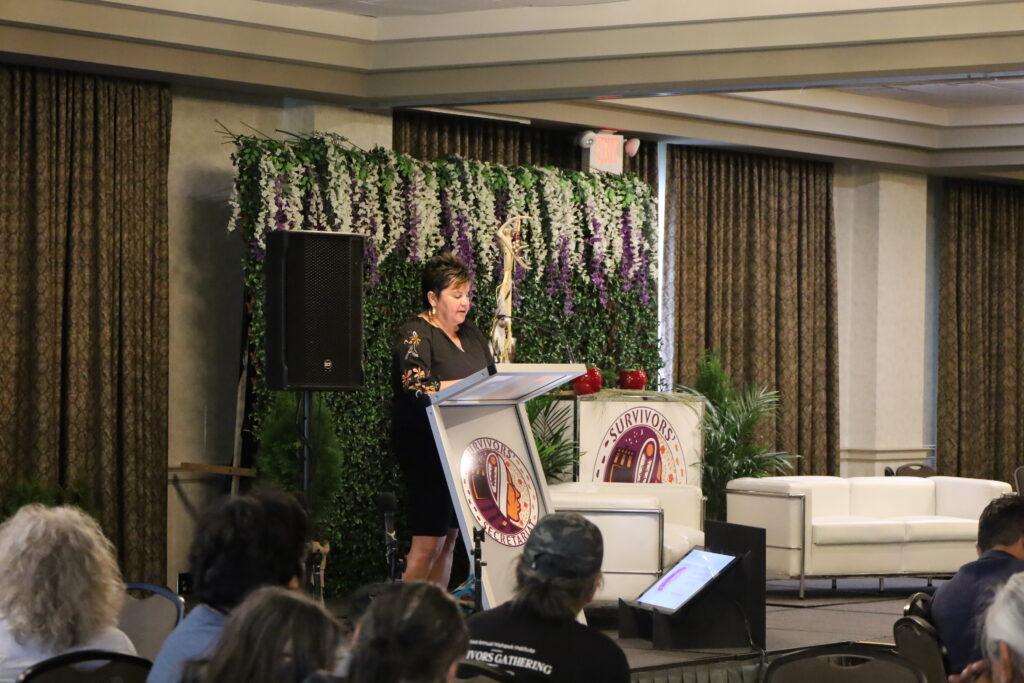
The Third Annual Survivors of the Mohawk Institute Gathering took place in Brantford, Ontario, from June 24-27, 2024, marking the 54th anniversary of the closure of the Mohawk Institute. Approximately 300 attendees, including 80 Survivors, Intergenerational family members, guests and staff were in attendance. The gathering was a powerful display of community, and commitment to bring the children home.
Over three days, Survivors, intergenerational survivors, their guests, and staff gathered to discuss commemoration and memorialization. They received updates on the Secretariat’s work supporting the investigation into missing children and unmarked burials. In this brave space, survivors had the chance to reconnect with each other and engage with the Survivors’ Secretariat.
They shared their experiences and discussed the best ways to honor both their lived experiences and the children who did not return to their homes. Each morning, community leaders, knowledge keepers, keynote speakers, and experts contributed valuable insights that enriched the discussions throughout the gathering.
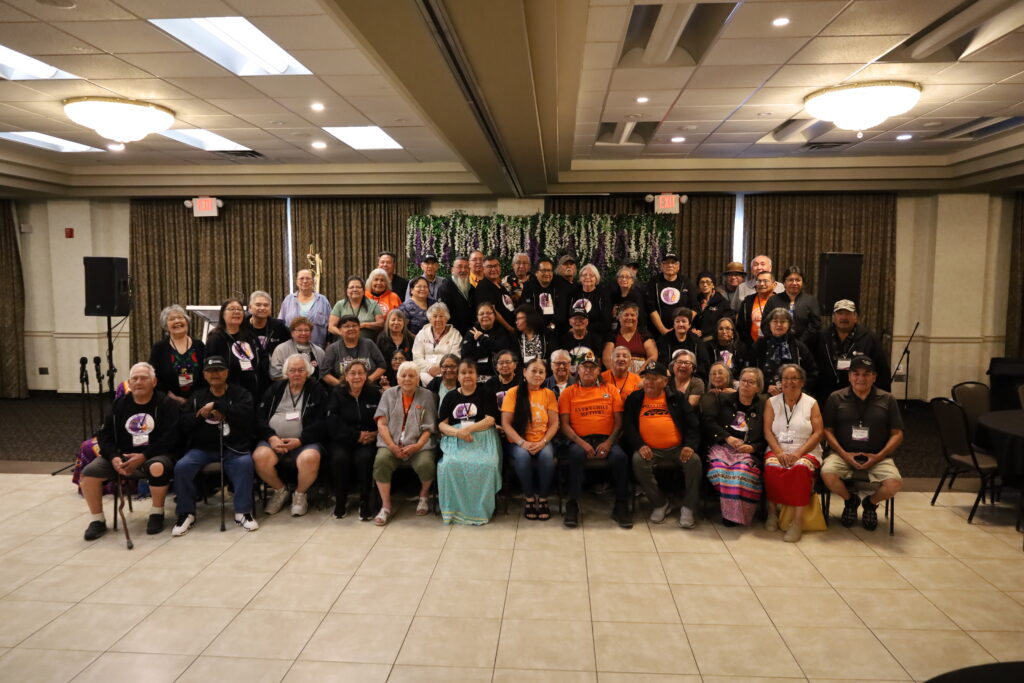
Our Keyote Speakers
Keynote speakers Brenda Reynolds, Sherlene Bomberry, Laura Arndt and Dr. Beverly Jacobs brought invaluable perspectives to this year’s gathering.
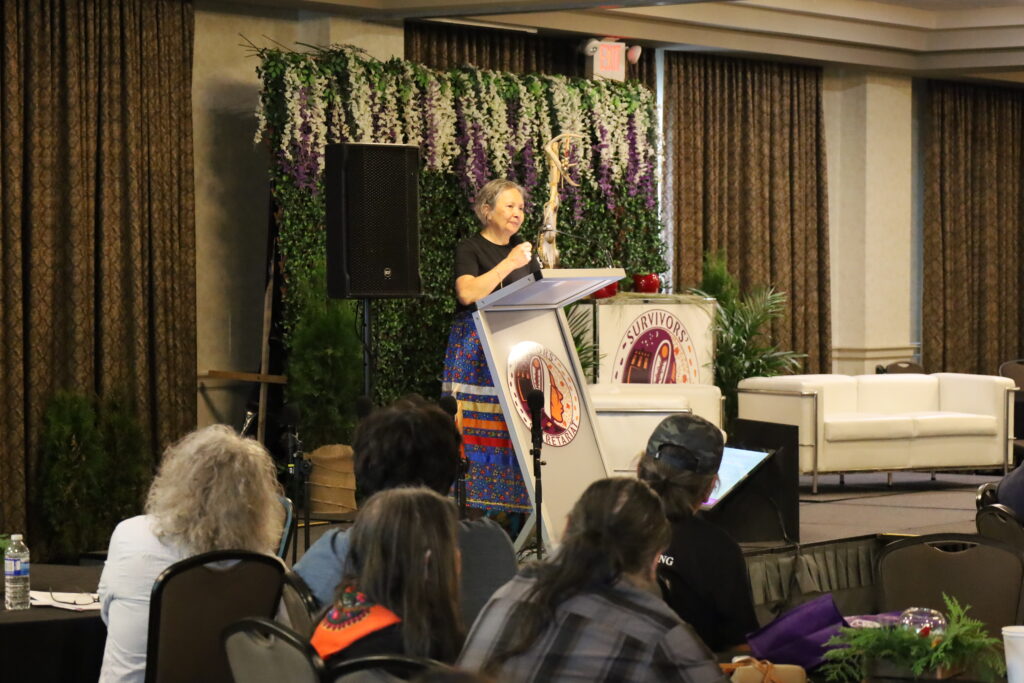
Brenda Reynolds, a trauma expert, emphasized the importance of awareness, grounding and making the connection from your head to your heart. She shared many strategies on how to deal with the traumas inflicted by Indian residential schools.
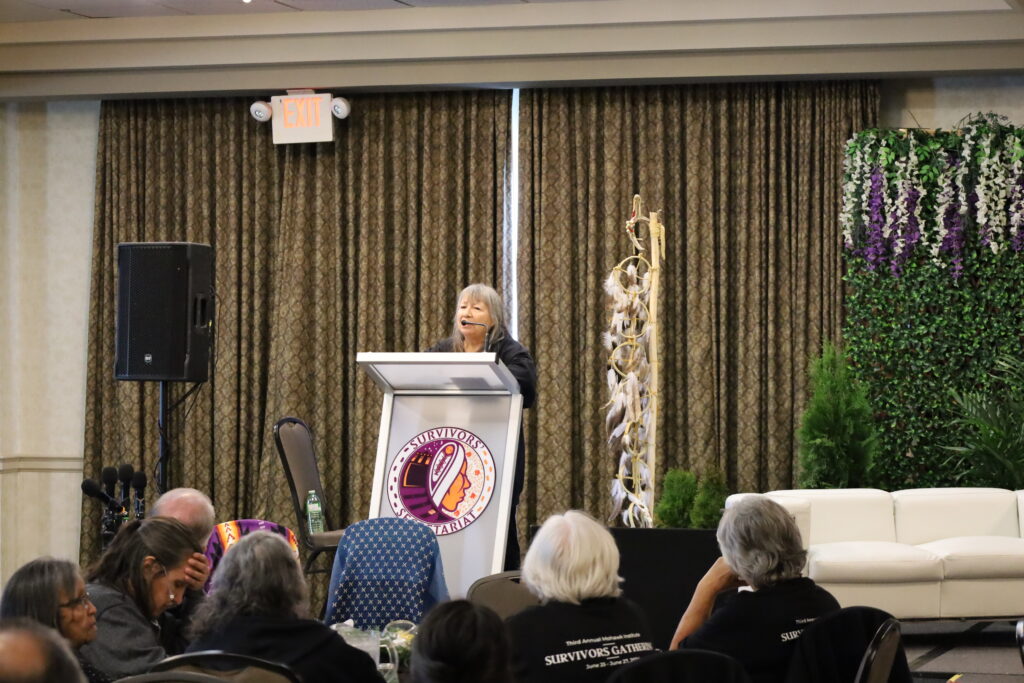
Sherlene Bomberry, a member of Survivors’ Secretariat board, shared her personal journey of healing; highlighting the significance of self-forgiveness, care and cultural revitalization in the healing process.
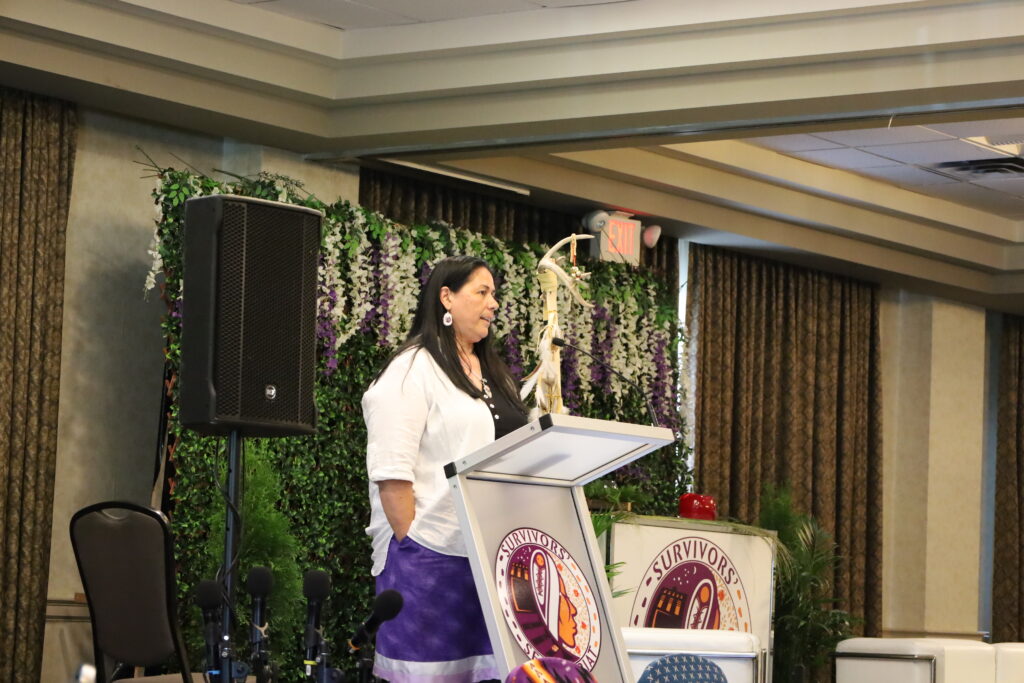
Laura Arndt, Lead of the Survivors’ Secretariat, discussed the realities of commemoration and the challenges involved in breaking ground to recover ancestral remains. She emphasized the critical importance of respecting traditional practices, teachings, and ceremonies related to death and burial, noting that these practices vary across different nations and that ongoing dialogue is essential for guiding this work. She concluded by highlighting the significance of preserving memories through records and documents and by honouring each child who attended the Mohawk Institute by name.
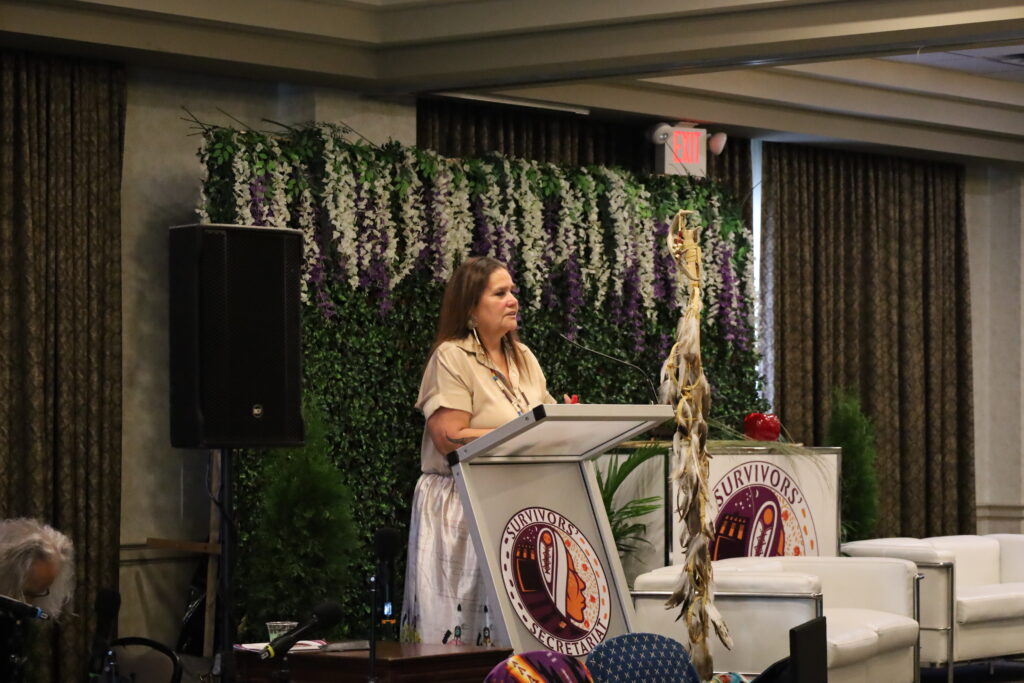
Dr. Beverly Jacobs, a respected legal scholar, addressed the complexities of navigating colonial legal frameworks and emphasized the need for protocols that prioritize Survivors’ emotional, spiritual, physical, and mental well-being.
The panels offered attendees a chance to hear about ground search efforts and commemoration from multiple perspectives. Each presentation was followed by a question-and-answer session, and panelists were also invited to join the afternoon’s discussion circles or workshops to continue the dialogue.
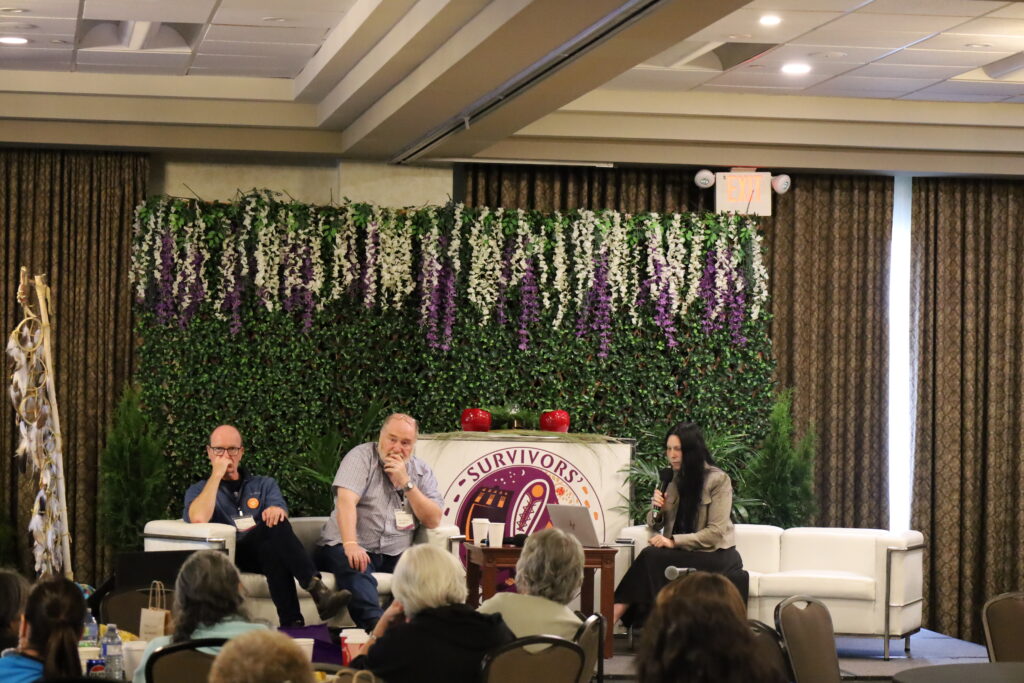
The Realities of the Ground Seach panel discussion featured experts like archaeologists Scott Hamilton, Ed Eastaugh, and Tanya Hill-Montour, provided valuable insights into ongoing efforts to uncover unmarked burials and underscored the necessity of collaborative efforts throughout this sensitive process.
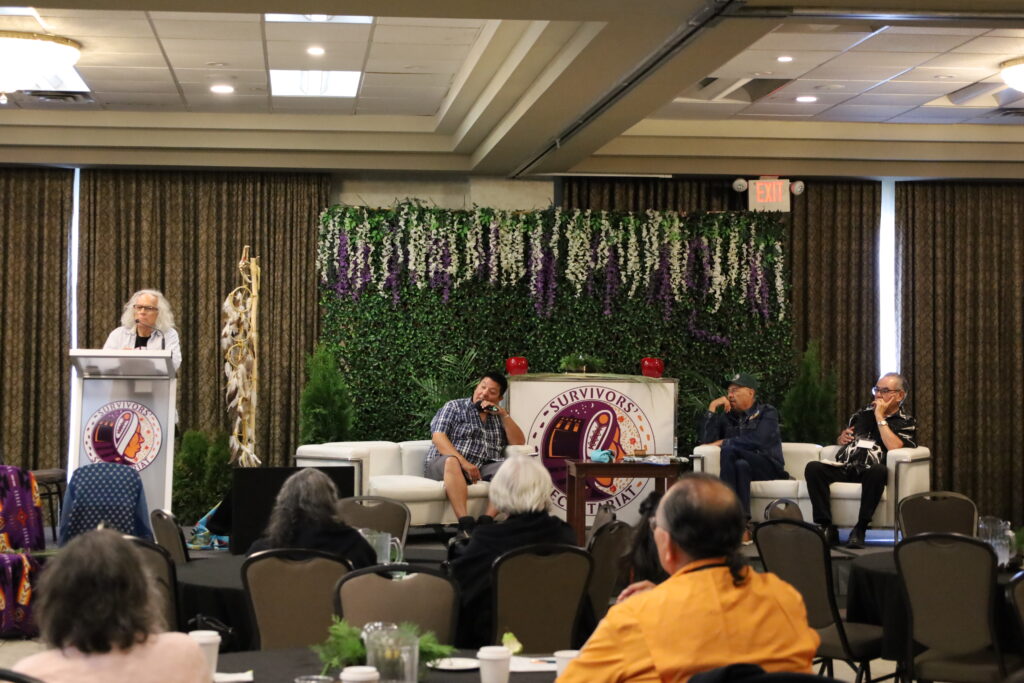
Darrell Boissoneau from Garden River, Eddie Thomas, and Pastor Phil Sault from Six Nations of the Grand River also joined us to discuss the importance of commemoration through ceremony, and traditions. Speaking from spiritual and faith-based perspectives, each addressed the role of hope and the importance of honouring the memories of all the children.
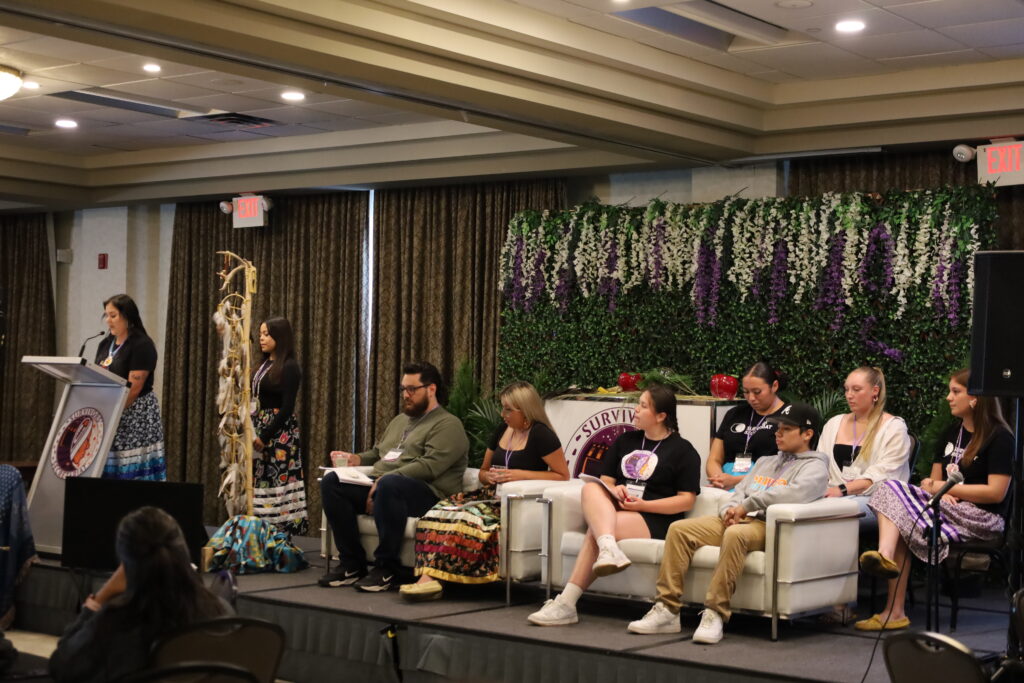
Youth Supporting Survivors Summer Student Program were involved in the afternoon’s discussion circles as notetakers and presented a summary of what they heard on the final day of the gathering. This keynote was a demonstration of how young people can advocate to amplify Survivors voices.
Nia:weh to the YSSP team members, Alysha Whitlow, Angelina Bomberry, Christina Hill, Deyon Chantel VanEvery, Dredon Layne Bomberry, Eric Giles Patterson, Jaden Squire, Jersey Squire, Melody Faith Courchene, Ronni Blair General, Sophia Daniella Bomberry, and Riley Hill.
Honouring Cultural Resilience
In a touching display of innocence, beauty, resilience, and cultural pride, students from the I.L. Thomas Immersion Kindergarten class delivered a powerful recital of the Haudenosaunee Thanksgiving Address. Their performance received a standing ovation from everyone in attendance, who recognized that the seeds of culture and language are taking root among the younger generation.
For the Survivors of the Mohawk Institute, who endured the erasure of their culture and the trauma of assimilation policies, hearing this Thanksgiving Address recited by the youngest members of their community was a profound validation of their efforts. It underscored the importance of preserving truth, celebrating resilience, and honouring the enduring spirit of Indigenous peoples.
“To witness young children embracing and celebrating their heritage is a beacon of hope, and a reminder that despite past injustices, traditions can be preserved and passed down to future generations.”
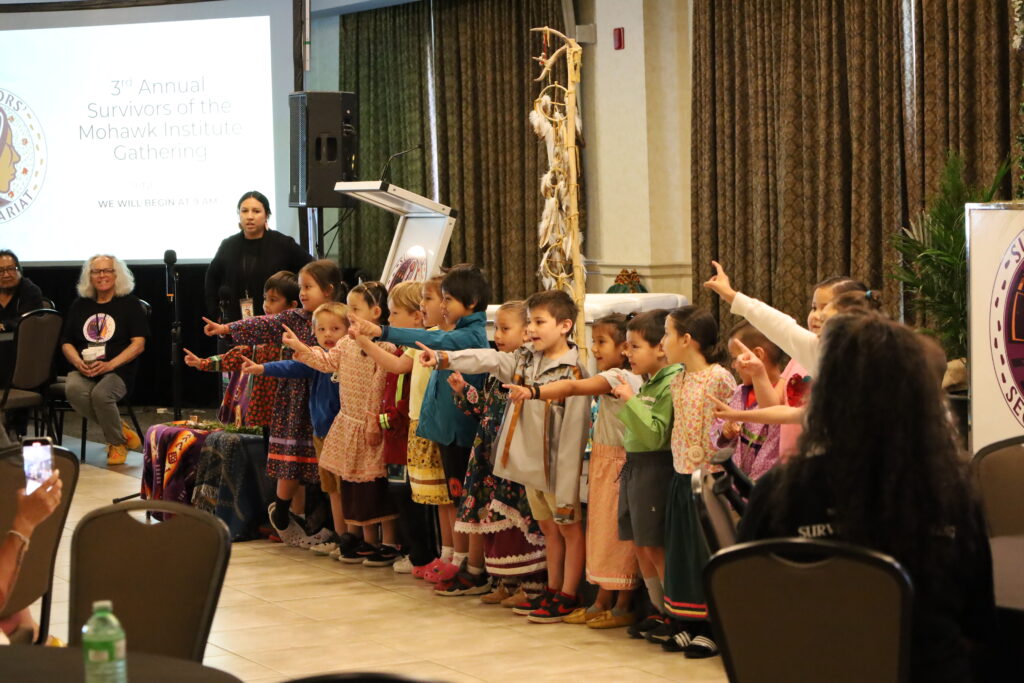
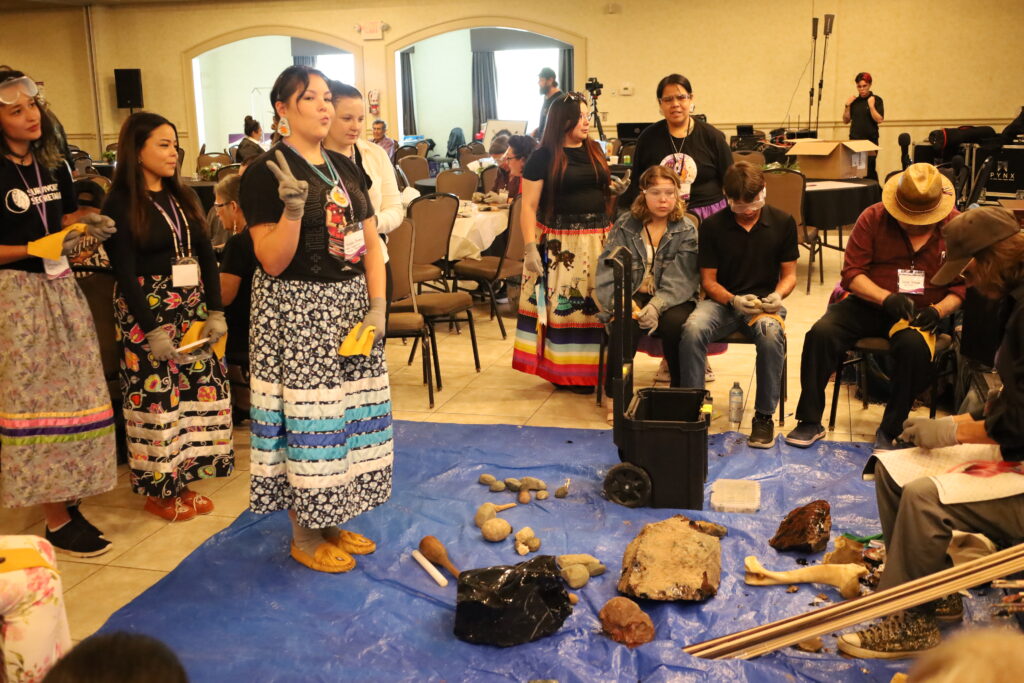
The Survivors of the Mohawk Institute Gathering of 2024 served as a powerful testament to the sense of shared experience, and community born out of survival.
The Secretariat would like to extend its gratitude to the community leaders, health and wellness supports, knowledge keepers, keynote and panelist speakers, support persons, Inter-generational survivors, youth, and staff who joined us this year – Nia:weh for your invaluable contributions to making this year’s event a success.
Healing and wellness support was gracious provided by Six Nations Crisis Hub, Brantford Regional Indigenous Support Centre, and Indigenous Primary Health Care Council.